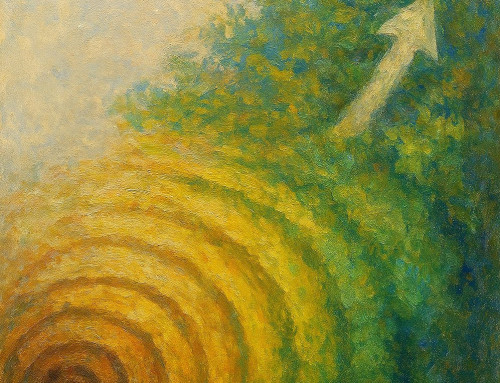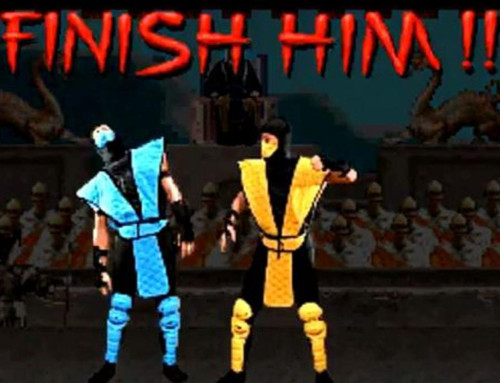When I first started training martial arts back in 1993, there was no YouTube, no social media, and internet access wasn’t easily accessible by all. Internet was quite slow and got interrupted often. For those that didn’t have the displeasure of internet access in the nineties, let me sum it up briefly. First, you disconnected the line from your phone (no, not the power chord to your mobile phone, the landline phone). Then, you connected it to the computer to access the internet.
After God awful hissing, screeching and nails on the chalkboard sounds have caressed your ears for about ten seconds, you were connected! Only to be disconnected when a telemarketer inevitably called and canceled out anything you were doing online. Plus, it was brutally slow. It could take minutes to load a single webpage. Downloading a video? You had better hope no one calls for the next hour. My point of this is, trying to garner information from sources outside of your instructor, a couple martial arts magazines and whatever books your local library carried was frustratingly difficult.
Along with difficulties finding sources of martial arts information came the fact that many martial artists didn’t like sharing their “secrets”. They were very protective of their systems. I grew up in a small city where there was only one major martial arts school, which is where I trained. I couldn’t even ask school friends about what they were training at their martial arts schools, because there was no one outside of the few people that trained at the same studio.
Fast forward to current day where there are innumerous channels on YouTube dedicated to teaching techniques, critiquing styles, discussing history and anything else you are looking for. You even have dorks writing up martial arts blogs on their website that upwards of five people read…anyway, on to my point. Everyone is an expert on everything these days. Everyone is suddenly a martial arts expert, a climate scientist, a virologist, a medical doctor, and even an expert in bird law. Who knew everyone was so smart and educated on every subject that pops up in the news each day?!
I watch some of these online videos from time to time as they occasionally provide creative ideas for drills or give me a new perspective to think about from a different martial arts style. Some of the time though, I spend most of the video trying to unroll my eyes from the back of my head due to the clear ignorance of what I’m seeing and hearing. This leads me to doing a little background check on who is “teaching” in these videos.
Sometimes it’s someone with a very impressive martial arts background. Other times it’s someone who clearly just finished their free trial at their local gym and is suddenly an expert in their own mind. And then there’s the commentors. Oof. Talk about a cesspool of misinformation. Most commentors are extremely nice and say something positive or supportive. But occasionally there’s a Monday morning quarterback, keyboard warrior that must drop a “truth bomb” on everyone. They are hilarious.
We are in an information overload era. Not just online videos, but the number of martial arts schools and books have skyrocketed. Not to mention podcasts on martial arts are in abundance as well. But how do we know who to listen to? It’s incredibly difficult as many people sound like they know what they are talking about and have great confidence in their statements. Can you trust the information you are viewing and reading out there?
I was listening to a podcast a few years ago between the host and a scientist that was discussing misinformation on the internet, specifically on YouTube. I believe the discussion was about an online influencer presenting “evidence” of a flat earth or how birds aren’t real or some crazy conspiracy along those same lines. The scientist on the show stated something that really got to the heart of why this influencer, and others like him, need to be cautious in what they are “teaching” online for impressionable viewers.
He stated that these people come from an “improper starting position.” Meaning, they haven’t gone through the proper education and field experience to come to their conclusions. They, themselves, may have come across a misguided video that led them down the wrong path of information. On the surface, their argument may make sense to someone lacking the knowledge base to know where they are wrong. But someone who gained their information the proper way can easily see the mistakes in their work that led to the incorrect conclusions.
To relate this to martial arts, I’ll see many videos online or even talking to people in person about self-defense and I’ll hear something along the lines of, “I don’t need to learn self-defense because I carry a gun.” For someone who hasn’t trained in martial arts or someone who has never been in a physical altercation, this may sound like a legitimate reason for not training. However, those of us who have trained, competed or have been in a physical altercation, will know that it’s not that simple.
Even if you carry a weapon, you must train to deal with the sympathetic nervous system kicking in (fight, flight or freeze), which can dramatically alter your ability to physically and mentally use the weapon, or even remember you have it. Or maybe you weren’t taught how to carry it properly and it’s at the bottom of your purse or you left it in your vehicle, and so on and so forth. Self-defense is a complicated matter that takes many training hours to accomplish and understand.
I also find that people misunderstand the differences between self-defense and sport martial arts in these videos. The difference in some cases can be small and insignificant, but in other situations it’s a massive difference. Fighting another person of similar size, in a clean ring, referee, and both participants prepared and aware they are
about to fight is very different than what could happen in a self-defense situation. Multiple attackers, weapons, environmental issues (obstacles, sharp rocks or glass on the ground), and being attacked at a moment you are most vulnerable and unaware are just some examples. These two things require different skill sets and philosophies in training methods.
These issues aren’t just limited to social media influencers or YouTube stars. Over the years I’ve seen instructors with this same lack of an improper starting position. I’ve heard and witnessed some horror stories of fake instructors, fake ranks, or fast-obtained ranks. This is partially because there are no real overarching standards when it comes to rank promotion and who can teach, beyond their own association’s standards.
Some associations have high standards. Their black belts are well trained, and their instructors have completed comprehensive programs to be certified as instructors. While other associations hand out certificates and ranks as long as you pay the fees. Others may not even have an association with standards to follow. This is not an issue as long as they themselves hold a high standard. I’ve seen some who received their black belt by attending a few seminars and then turn around and open their own studio with little to no experience.
I mention these instructors and online videos not to complain and rant and scare people away from training or learning from all sources possible but to explain how to navigate all of these sources and spot those who did come from a proper starting point versus those who did not. I will say though, even those who clearly have no idea what they are talking about can provide some useful information or thought exercises. It’s usually just by accident though. My biggest issue here, however, is that it can be extremely dangerous.
Self-defense is about life-saving techniques. If you tell someone to “do this cool technique and you’ll easily defend yourself in this scenario,” and it’s a bad technique, it can literally kill someone by providing a false sense security. This is especially true when weapons are present. I grind my teeth every time someone teaches a gun or knife defense without first explaining to NEVER use this technique unless you know beyond a shadow of a doubt that if you don’t do something, you will be killed. There is no such thing as a great knife or gun self-defense technique. They are Hail Mary techniques when all other options are gone.
Great and useful information can come from anywhere. The tough part is filtering through the terrible information. There are a few things you can do to help decide what is useful and what is not.
1. Know exactly what you are looking to learn. Meaning, if you are searching for a technique for a self-defense situation, make sure the person teaching it is on the same page and not teaching a technique for sport related fighting or demonstrations. For instance, if you are looking for “the best kick to learn”, you will get may get numerous different answers. The kicks I used for tournaments/competitions are not the same kicks I would use for self-defense. Furthermore, there are kicks that I have trained that are all but useless outside of demonstrations, but the act of training them helped improve other kicks that I used more often due to the mechanics involved. Know what it is that you are wanting to train and improve on and make sure what is being taught fits the mold.
2. Do a bit of a background check on who is providing the information. Look up their credentials. When it comes to self-defense techniques, I place a lot more weight in someone who has worked a number of years in security or law enforcement and holds a black belt over someone who holds a much higher rank but has never been in an altercation or has never competed. I love hearing, “I’ve used this technique numerous times successfully” when it comes to someone teaching me something. Or if I’m looking for sport related techniques to use in the ring, I’m more likely to listen to someone who has competed themselves or has trained known fighters with success. Experience matters, a lot.
3. Cross checking information. Do others (or other sources) that you trust say the same thing? One of the most common responses I get from students who attend seminars taught by others is that the other instructor repeated much of what I have taught them. It helped cement in their minds that they are learning a proper technique. Martial arts techniques have been around for quite a while. Even longer than the arts themselves. To come up with some new unknown technique is highly unlikely. Different training methods are more likely to be unique. But if you see someone teaching a “new technique”, I’d be skeptical.
4. If someone is demonstrating a technique on a training partner playing the part of an attacker, place yourself in that attackers’ shoes. What would you do in reaction to what’s going on? If someone is showing a ten-move combo in response to a punch attack while the attacker just stands there, I wouldn’t place much weight in the defense being taught. Not that combos don’t work, but people react to being hit. This means the person will move during the combo. Does the defender follow those potential movements or just assume the attacker will be in the same spot the entire time?
5. If the information is historical or culturally based, do they provide references to where they got their information so you can read up on it yourself? When I was writing and compiling my book, “A Journey Through Martial Arts Myths and Misconceptions”, I went down rabbit holes all over the place trying to find answers. Some of the books I read were fantastic in their references, so I had a paper trail to follow. Other books and videos had absolutely nothing. I had to drop a lot of seemingly great information because I just couldn’t confirm anything being said. Did they read it somewhere? Or did God beam it into their brains while sleeping one night? No clue.
6. Lastly, use your best common sense and try the techniques out. Does it seem to work well? If you’re working with a partner, can they spot flaws? Is there another instructor around that you can ask their opinion on the matter? Make no assumptions, find ways to confirm these techniques.
It’s easy to state that if you want to learn martial arts, you should just seek out a qualified, well-known, instructor or school to train at. But some people can’t afford that, and others live in areas where that just doesn’t exist. It’s great that people can now read up on what to train, watch videos or listen to podcasts these days. But with all the great information out there comes misinformation to muddy the waters.
Being able to filter through what is useful and what is not is critical. I’ve had more and more students in the past fifteen years coming in and claiming they have previous experience and expect to fly through ranks or have even asked if they can join as a black belt. I then proceed to look at their technique during their trial class and cringe. Most of the time, they trained at a different school that simply had low standards. Some, I believe, learned from online videos but don’t want to admit that. Other times I’m relieved when they show me proper technique for the rank they claim to be. I’ve had to turn away some potential students because I wouldn’t let them join at the rank they claimed to be.
Finally, if you are searching for a school to train at, don’t be afraid to ask for credentials of some sorts. While not all styles and schools provide rank certificates, many do. I have my current martial arts ranks, fitness trainer certificates, and instructor certifications all displayed on the wall of my office. Oddly enough, it’s extremely rare that anyone asks me what my rank is or what my background is. Most just assume I know what I’m talking about.
Much like the fitness industry, there is no real regulation on who can teach or train you. I’ve met a few personal trainers who have never obtained a fitness trainer certification. They simply said to themselves, “I’m good at training myself, I assume I’d be good at training others too.” They set up a website and begin training people. It’s terrifying. Martial arts can be the same way. Martial arts instructors don’t need to provide any credentials to open a studio and start charging for lessons.
As mentioned above, I’ve witnessed more than one person start up a school and start teaching who either had no official training or received their rank through a few seminars they attended. These people are extremely dangerous. Not for their martial arts skills, but for their ignorance in what they are teaching. They can seriously injure someone in their classes or provide a false sense of security that could lead a student to being seriously injured or even killed in an altercation. Thankfully most of these people get found out eventually. But who knows how much damage has been done already.
It doesn’t matter if it’s martial arts, fitness, nutrition, or something else you are trying to learn, take the time to make sure the person you are getting your information from has come from a proper starting position. Getting your medical information from your friends’ yoga instructor can be deadly. And getting your martial arts training from Cletus, the online influencer who gets his martial arts experience he’s imparting to you from his oil wrestling matches in the shady bar down the street can be disastrous for you.







Leave A Comment